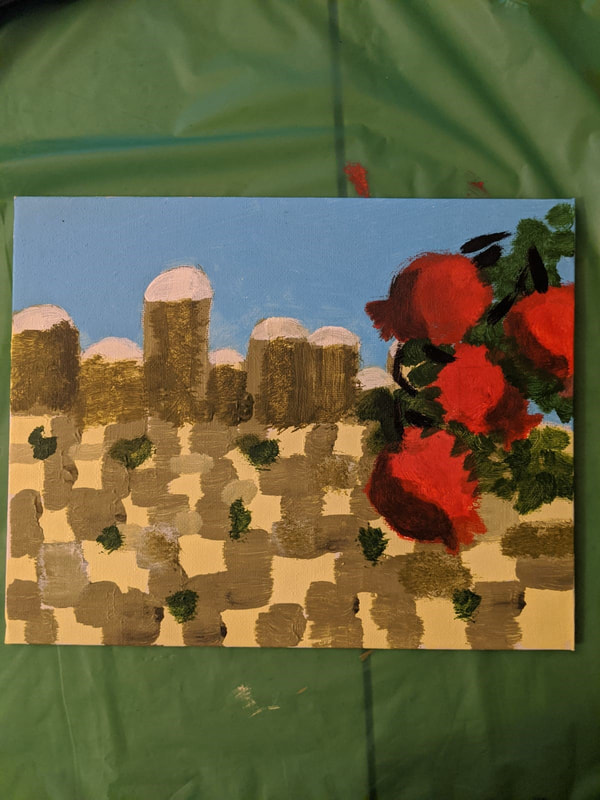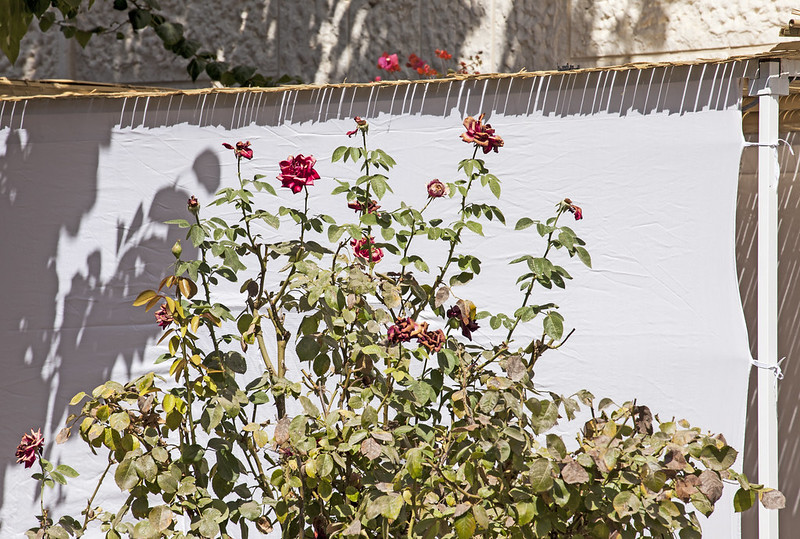|
Lamentations is about endings. It is about mourning what once was, what could have been. Lamentations mourns the destruction of the first temple in Jerusalem (and perhaps all subsequent Jewish communal devastation). Although this destruction happened in 586 BCE, by the ancient Babylonians, when we chant Eicha (Lamentations) we stand in the footsteps of the people who experienced this catastrophe, and even more so in the footsteps of their children who memorialized it. Lamentations is about the power of memory. Not beautiful memories of our children in their youth, or happy moments from our pasts, but rather the saddest moments of an entire century. By chanting Lamentations, we bring into full focus the moments in which we lacked all power to halt our own demise, into which we fell into the hands of callous enemies. It is not easy to voluntarily enter this space, even virtually, as we will do this year. The rabbis help to break us in to this vulnerable time through the “three weeks” of restrictions and then 9 days of more stringent restrictions. Music is downplayed and beards (of grief) grow slowly over smooth faces. A piece of meat is hard to find in kosher restaurants. Not that anyone is really eating in restaurants these days. And that brings us to the uniqueness of Tisha B’av this year. The pandemic has literally knocked us out. We are already vulnerable, already fragile. Almost all of us know someone who has been ill, died, or at the very least tested positive without visible symptoms. Our world is in “disarray” to quote the title of Richard Haass’ recent book on foreign affairs. We don’t know what our futures will look like or the ways our present will shape us in the long term. We sit on low stools in the dark. We are entering a full-on paradigm shift and we are running to catch up. Tisha B’av gives us permission to stop hurling through the chaos and just mourn what has been broken. Just sit. The city is imagined as a broken woman, a widow, a menstruating woman who has been abandoned by her community and friends. As she cries, we cry. How will we remember this moment? How will we remember the loss and the recovery? How will we sing of the failure of leadership and the rise of technology? Like Rabbi Yochanan Ben Zakkai, as he looked back on the ruins of the Second Temple in Roman occupied Jerusalem in 70 CE, he cried because he did not know if his grandchildren would recognize the Jewish religion as he did in his own time.
Dr. I. Breslau, recently shared her takeaways from a talk by Arthur Brooks of the Harvard Business School. In helping people deal with the lasting impacts of the Corona virus, Brooks, distinguishes between “disappointment” and “regret.” Both states result in feelings of powerless and lack of control. Both states lead to uncertainty about the future. With disappointment, as we feel with Covid-19 and the uncertain future it brings, Brooks encourages us to acknowledge our feelings (and do not suppress the feelings by bingeing on information) and recognize that our circumstances are not our fault. Acknowledging disappointment can help us appreciate the gifts we have of waking up healthy, being in relation to friends and loved ones, having enough food, having access to books, music and art and the physical world. Presumably, regret demands some different kind of action to move through this state of dismay. Regret demands the question: Could I have acted differently? And, if I acted differently, could I have prevented this situation? The guilt that can ensue in this quest is far more difficult and can wreak havoc on the soul. To admit that I did something terrible or I acted weakly, or I gave up on a child or a spouse…In these cases, simply acknowledging that we don’t have control over our present circumstances is not enough to move through the despair. Lamentations asks us to sit with both disappointment and regret. Unlike the pure disappoint ment of life with the corona virus, Lamentations adds regret. This short, 5-chapter book in our TaNaK informs us that to be fully engaged with this Jewish day of mourning, we have to acknowledge that we have contributed to the brokenness of our Jewish world and by extension, the ills of our own society. What are we really to do with the harshness of this reality? We sit through it. We mourn as a community. We let ourselves feel our feelings. We accept responsibility and we strive to do better. We don’t drown ourselves in media. And we listen carefully to Devorah’s chanting the last line of Chapter 5. Hashiveni Adonai V’nashuva, Hadesh yamenu K’Kedem הֲשִׁיבֵ֨נוּ יְה אֵלֶ֙יךָ֙ וְֽנָשׁ֔וּבָה חַדֵּ֥שׁ יָמֵ֖ינוּ כְּקֶֽדֶם׃ Bring us back to you our God, and we will return. Renew our days as (you have done) in the past. The answer is faith.
Faith in God. Faith in ourselves. Faith that our fragile lives will continue to restore and renew themselves. Faith that even though we cannot control the present or the future, we have the power to make good on the gift of life. I wish you peace on this journey through the brokenness of this time in our Jewish year. May you have an easy fast and a meaningful Tisha B’av. Rabbi Elizabeth
1 Comment
Listen carefully to Devorah’s chanting the last line of Chapter 5.
Hashiveni Adonai V’nashuva, Hadesh yamenu K’Kedem הֲשִׁיבֵ֨נוּ יְה אֵלֶ֙יךָ֙ וְֽנָשׁ֔וּבָה חַדֵּ֥שׁ יָמֵ֖ינוּ כְּקֶֽדֶם׃ Bring us back to you our God, and we will return. Renew our days as (you have done) in the past. Listen as Rabbi Elizabeth chants Eicha 1 in Hebrew and English
|
ReflectionsHineni.Space posts brief daily offerings (Elul meditations, reflections, poetry, and melodies). There is a tradition to hear the shofar every day of the month of Elul and to recite the verses of Psalm 27. Archives
March 2021
Categories
All
|
|||||||||||||||







 RSS Feed
RSS Feed